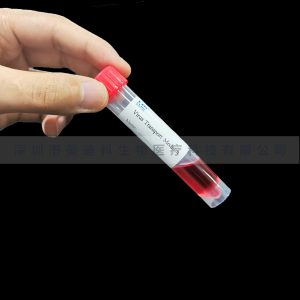Since the end of 2019, the seventh human coronavirus SARS-CoV-2 (SARS-CoV-2) has infected more than 80 million people worldwide, and more than 1.77 million people have lost their lives. At the beginning of the outbreak, even a well-trained virologist could not judge the situation immediately, and the shadow of “unexplained pneumonia” enveloped human society for a period of time.
In the face of such new infectious diseases, scientists charge ahead and shoulder the heavy responsibility of finding out the “real murderer”. “At this time, competent scientists are needed to make judgments, draw conclusions, and report them to relevant departments.” In an interview with a reporter from The Paper (www.thepaper.cn), a domestic virologist stressed that it is especially important to have scientists with this ability and responsibility in the early stage of the epidemic.
This is not an easy task. In April 2020, after the outbreak, Susan R. Weiss, an American microbiologist who has been studying coronavirus for 40 years, published an article in the American Journal of Experimental Medicine (JEM), feeling that when she first entered the field of coronavirus, there were far fewer coronavirus researchers.
In the autumn of 1980, the first International Conference on Coronavirus was held in Wü rzburg, Germany. At that time, Weiss was invited to attend the conference, and about 60 people attended the conference, almost the global researchers in this field at that time. “Every pandemic like SARS or COVID-19 will prompt researchers to flood into this field. With the disappearance of the virus, the number of researchers will decrease. So far, the scientific community is still full of unknowns about human coronavirus. ”
Compared with SARS in 2003, the time for scientists to find out the real murderer is much shorter. In the first few days of January this year, the Chinese research team sequenced the bronchoalveolar lavage fluid (BALF) samples of patients and obtained partial or complete genome sequences of SARS-CoV-2. On January 9, the results of pathogen identification were reported to the World Health Organization; On January 12th, China registered the genome sequence information of the new coronavirus in the global influenza shared database, and informed the international community about the genome virus data.
Wu Zunyou, chief epidemiologist of the Chinese Center for Disease Control and Prevention, said in November 2020 that in the early stage of the COVID-19 outbreak, China only identified the pathogen in seven days and developed diagnostic reagents in two days, creating the shortest record for human beings to know a new infectious disease.

China Youth Network announced: the ABC just announced that on Monday (21st) afternoon local time, U.S. President-elect Biden publicly vaccinated against COVID-19.















 China Youth Network announced: the ABC just announced that on Monday (21st) afternoon local time, U.S. President-elect Biden publicly vaccinated against COVID-19.
China Youth Network announced: the ABC just announced that on Monday (21st) afternoon local time, U.S. President-elect Biden publicly vaccinated against COVID-19.

